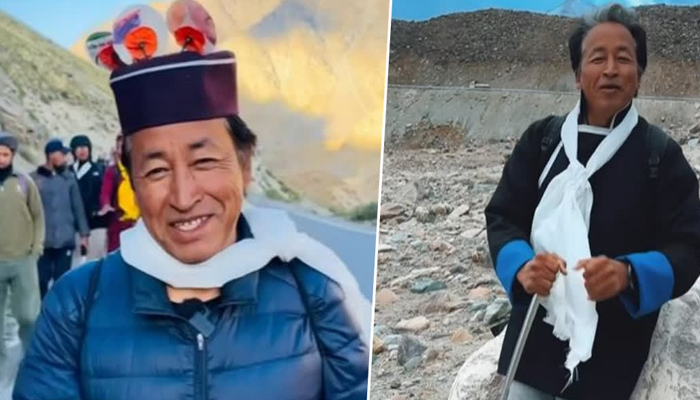By Sahil Sharma: In March 2023, approximately 30,000 residents of Ladakh, over 10% of the region’s population, gathered to assert their demands for rights and recognition. This significant protest, however, has received scant media coverage, raising questions about the attention given to issues affecting remote communities.
Prominent in the movement is Sonam Wangchuk, a noted educator and innovator, who took drastic action when talks with the government stalled. Wangchuk initiated an indefinite hunger strike, enduring 21 days without food to amplify Ladakh’s plea against corporate exploitation and to advocate for its environmental and democratic rights. “I will not eat until we are heard!” he declared, embodying the resolve of the protestors.
The demonstrators put forth four key demands:
1. Inclusion in the Sixth Schedule: This constitutional provision would grant Ladakh protections against external exploitation, enabling self-governance for tribal areas.
- Full Statehood: Activists seek to transition from Union Territory to full state status, allowing for greater political autonomy.
- Increased Representation: They are calling for two Members of Parliament (MPs) to represent the distinct districts of Leh and Kargil, rather than the current single MP.
- Public Service Commission: Establishing a dedicated commission is aimed at ensuring job security and opportunities for locals.
This struggle is not isolated to Ladakh. It mirrors similar movements in Hasdeo, Manipur, and Uttarkashi, where environmental degradation and corporate encroachment threaten local communities. Activists warn that if these issues are not addressed, the region’s rich cultural heritage and biodiversity could be irreparably harmed.
The protesters’ resolve is further solidified by their appreciation of Ladakh’s unique environment, which attracts global tourism and hosts rare species. Yet, the government’s response has been apathetic, with many attributing the delays to political and corporate interests prioritizing profit over community welfare.
After months of fruitless negotiations, Wangchuk led over 100 volunteers on a month-long foot march to Delhi, dubbed the ‘Delhi Chalo Pad Yatra.’ This initiative, organized by the Leh Apex Body and the Kargil Democratic Alliance, aims to reignite discussions that have stalled since Ladakh became a Union Territory following the Jammu and Kashmir Reorganization Act in 2019. “Our first two demands are statehood and inclusion in the Sixth Schedule,” Wangchuk emphasized, highlighting the urgency of their cause. With more than 97% of Ladakh’s population classified as scheduled tribes, the call for constitutional protection is seen as vital for safeguarding their land, culture, and future.
Despite his earlier hunger strike, the government’s silence persists, prompting Wangchuk to affirm, “I will return with stronger resolve to achieve these demands!” The march is set to culminate at Rajghat on October 2nd, coinciding with significant political developments in Jammu and Kashmir, as Ladakhis closely monitor the government’s actions regarding their rights. The outcome of these negotiations could determine the region’s future, as its people continue to fight for recognition and protection of their homeland.
